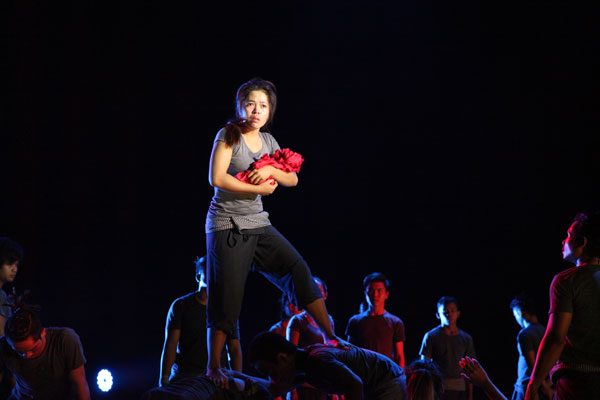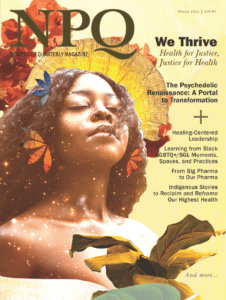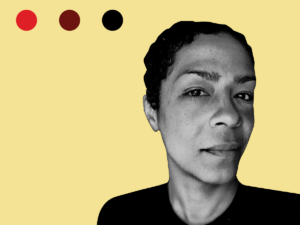
May 14, 2019; WBUR, “Artery”
When nonprofit organizations manifest their intentions through creative endeavors designed to “fit” the environment programming, they can produce a kind of magic—an energy that carries through to other things. A remarkable example of nonprofit success will be on display at the Paramount Center in Boston, when Cambodian circus performers trained by a seasoned theater director and produced by Global Arts Corps (GAC) perform on May 16th.
The role of nonprofits to bring seemingly disparate social elements together can be characterized as a step up from its basic function of free association to channel the energy of like minds into a collective effort. Jon Pratt’s recently published NPQ article, “Nonprofits as Agents of Tension and Democracy,” describes the existential complexity and (US) evolution of civil society organizations.
NPQ has reported numerous times on art nonprofits in healing trauma. Previous stories highlighted youth arts programming for community healing in Baltimore after the death in police custody of Freddie Gray, NEA funding for creative art therapy for veterans with traumatic brain injury and PTSD, and therapy applied to physical and emotional healing in an art museum.
Societies with an increased polarity of opinions and visible disagreements may lack the means of expressing their need to intentionally reunite in common purpose. Nonprofits dedicated to reuniting, through the arts, divided people and societies that experienced trauma, such as Global Arts Corps (GAC), can play a special role in such environments by bringing opposing groups together, helping them heal through creating and performing a play. On their website, GAC acknowledges the limitations of reconciliation and commits the organization to employing the creative process to collectively make meaning of the past that participants might not do otherwise.
GAC describes their arts capacity building work as follows:
Sign up for our free newsletters
Subscribe to NPQ's newsletters to have our top stories delivered directly to your inbox.
By signing up, you agree to our privacy policy and terms of use, and to receive messages from NPQ and our partners.
By partnering with local NGOs, leaders, educators, artists, and young activists in every location we visit, we ensure that the audiences who attend our performances extend beyond the theatre-going public; and we train the next generation to carry on the work of shifting perspectives after we leave.
GAC’s current program includes a touring circus performance from Cambodia having its US premiere this week in Boston. The production, titled See You Yesterday, breaks the silence of elders who survived the Khmer Rouge conflict, while allowing the young performers to “physically embody their inherited trauma.”
The play’s US director, Michael Lessac, described a development process that included the circus performers interviewing the elders and a former Khmer Rouge child soldier. Lessac asked them to imagine performing for the Khmer Rouge, under which circumstance making a mistake meant death. The goal is finding pathways to understanding via collective processing of the past through “conflict preservation.” This is akin to the work of facilitators that search for mutual understanding in dialogue by providing a safe space to express themselves.
Collective processing of trauma, however, is fraught. Individual trauma processing is difficult enough. It is unpredictable what happens after emotions surface. Using the theater medium, and specifically the circus arts, allows exploration of rage, sadness, and joy through physical movement and harnesses its power to engage the audience by putting the human condition on stage.
In Cambodia, GAC employed the transformative power of the circus arts to their theory. A personal aside: through firsthand experience, I know the thrill of being a part of a community circus troupe. Learning, practicing and performing acrobatics or other circus arts is a confidence-building exercise of self-discovery. In well-programed practices, tenacity is regularly rewarded by a rush of adrenaline from conquering new tricks. Bonding with peers and trainers is intense, nurturing, and long-lasting, lending itself to collective healing.
Lessac, who has directed TV shows such as The Drew Carey Show, said “the aspiration then, is for whatever’s uncovered to spill onto the stage, sparking dialogue, creating empathy and hopefully, cultivating true reconciliation.” In communities divided by violent history, searching for common ground to explore mutual understanding is needed. Art nonprofits whose mission includes fostering reconciliation can create space for conversations holding complexity, the first step to healing. Thus, their work has special relevance for fractious disagreements and seeming inability to solve serious problems.—Kori Kanayama













